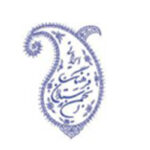Deepening our understanding of Ruhi Book 1
A reflection from tutors of the Springdale neighbourhood in Brampton, Ont. regarding their participation in a tutor seminar this summer held at the Don Valley Educational Centre near Toronto, Ont.
The purpose of the tutor seminar is to have a collective vision and understanding of the flow of concepts in not just one Ruhi book but the whole sequence of institute courses. Through analyzing the pedagogy and methodology of the sequence of courses, tutors gain a better understanding of what it means to release the society-building power of the Faith through the institute. One example of this is the discussion that occurred in the seminar’s Book 1: Reflections on the Life of the Spirit cohort as we noticed how the concept of the twofold moral purpose—to work towards personal transformation and the transformation of society—is present from the very first quote, “The betterment of the world can be accomplished through pure and goodly deeds, through commendable and seemly conduct.” So, although the concept of the twofold moral purpose is only explicitly stated later, it is embedded in the entire sequence of courses. Similarly, by participating in the seminars the tutors also understand how their role is not limited to the spaces of a study circle. A tutor can take concepts from the texts and apply them to every interaction they have with their participants and community members.
Our understanding of the role of a tutor in the community thus has been raised to a new level, as tutors are now thinking about their participants in every setting that they are together, as well as the circles of friends and family around these participants. Mere completion of books is not the sole aim, rather the quality of our conversations and study takes precedence.
A study circle meets in a local park in the Springdale neighbourhood in Brampton, Ont.
As tutors, we used to limit ourselves to thinking about raising new human resources for children’s classes or junior youth groups. However, after the study of Book 1, we saw how vital it is to view each participant as a soul walking a path of service. As tutors, we need to reflect on the stage of understanding each person in the study circle is at and how we can address their heart’s longings and aspirations. This allows us to take every opportunity to think about how to accompany participants in both formal and informal spaces.
Tutors assist the participants to carry out the practice components of the book by creating spaces for preparation, action, and reflection. In addition, tutors need to implement these practices in their own lives. For example, the habit of reading and reflecting on passages and Writings every day is outlined in Unit 1: Understanding the Bahá’í Writings of Book 1. This is vital, as the successive course materials build on this practice. The tutor is learning about how to engage the entire population of a neighbourhood in this practice. When the first unit of Book 1 is complete, participants are given a copy of The Hidden Words to encourage the habit of reading the Writings. This practice can also be extended to the home visits that tutors and participants carry out.
As a result of the seminar, the tutors in our neighbourhood wanted to learn how to make the institute accessible for everyone. We thought about how closely we can intertwine the concepts of Book 1 in our conversations with friends and families. When we restrict our understanding of how one moves through the institute process, we are ignoring the many ways people can and have engaged with the Word of God and the Faith’s principles. Home visits then, can become a space where families and youth can advance their understanding of what it means to build a better world, in whatever way they see themselves contributing.
The tutor seminar has also shaped the perspective of tutors regarding their efforts to integrate the arts while navigating the destructive social forces that influence them. Through workshops during the seminar, tutors learn skills related to the application of the arts in expressing divine concepts and ideas. While participating in the music workshop we learned that music is the expression of the divine and not of the self. Yet, Western traditions often dictate that music is the expression of the self and is therefore self-centred. Through this exercise, we reminded ourselves that God and selfless service are central to our lives and that the arts can be applied as a way to understand and embody the teachings of God.








